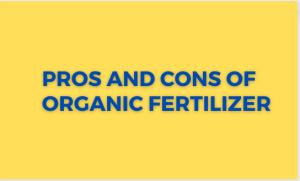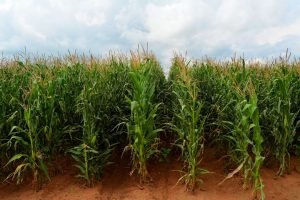Mulch is the materials you place around a plant or the garden to keep the intense sunlight away. Mulching is an agricultural practice usually done in areas with less rainfall. There are several ways to do mulching: use of organic material, use of sheet mulches and use of permanent materials like gravels. There are numerous pros and cons to having mulch in your garden.
Pros of Mulch
The benefits of mulching are:
1. Reduce heat damage: One of the greatest significance of mulching is the ability to minimize the amount of heat reaching the ground. Mulch material protects the soil from direct sun rays. Because of this, the soil can avoid dangers associated with direct exposure to sun rays.
2. Soil retains moisture: Mulching has made farming in arid areas a walk in the park. Mulching covers the areas surrounding the plants, and thus there is no direct exposure to sunlight. The soil remains cooler for many days than when no mulching is in place. In addition, the intense sunlight rays do not stress the roots of the plant. Therefore, mulching reduces water evaporation, hence saving watering time.
3. Reduction of soil erosion. Soil erosion is one of the biggest threats to agriculture. The erosion takes away top-fertile soil, thus making farming activities unfavourable. With mulching, the soil is protected from extreme rain droplets that may cause erosion. In addition, mulching curtails the effects of strong winds that are likely to cause erosion.
4. Suppresses weed growth. Mulch suppresses the weed from sprouting. The mulch blocks the sunlight from penetrating and stresses the weed beneath it. Thus, you will see there are fewer weeds around the mulch. Therefore, the farmer can save on herbicides.
5. Improves soil nutrients. Organic mulches are the source of nutrients for the plants. After some time, the organic mulch decomposes and provides the soil with nutrients. The decomposed mulch is a plant fertilizer, leading to more yields. Decomposed mulch saves the farmer from purchasing artificial fertilizer.
6. Encourages worm and organism activities. Mulch is the home of worms and other organisms. These worms promote air circulation in the soil, thus boosting the plant’s health.
7. Regulate the ground temperature. Mulch plays a vital role during cold and hot seasons. During hot seasons, mulch reduces the amount of heat penetrating the ground. Because of this, optimum temperatures are maintained in the soil. Conversely, mulch controls heat emission into the atmosphere during cold seasons.
8. Rapid and better growth. Mulched plants are likely to grow faster than other plants. Mulched plants enjoy several benefits, and thus their health is always boosted. Moreover, mulch is likely to make the climate condition of the plant favourable.
9. Wind resistant. Mulch materials make the plant stronger. If a plant is surrounded by mulch, it will likely overcome the effects of strong winds. Therefore, mulching is beneficial in areas that experience strong wind patterns.
10. Low maintenance. Mulching is mostly done with dry plants and leaves. After mulching, you may never replace the mulch.
11. Low damage to the lower part of the plant. Mulching protects the base of plants from damage and other risks.
Cons of Mulch
Here are some of the disadvantages of mulching:
1. Over-mulching problems. The use of too much mulch in the plant may be a risk. Adding too thickly mulch to your plants may cause suffocation of the plant. You can also bury the plant.
2. Home of pests. Pests are friendly creatures when they are not close to your plants. Mulch acts as the hiding place for these harmful pests. The pests are likely to attack and destroy your plants. The farmers spend a lot of money on pesticides to control these pests.
3. Air Starvation. Over-mulching the plant can lead to air starvation. This is where the amount of oxygen in the soil is minimal to satisfy the plant. Air starvation in the soil can lead to the death of the plant.
4. Fire hazards. Dry leaves and plants are commonly used as mulch. In case of a fire outbreak, they will likely catch fire. Therefore, you must keep fire or cooking equipment far away from mulch.
5. Water pooling. When you apply too thickly, the water will likely flood around the plant when it rains heavily. This may lead to the rotting of the plant’s roots and base. Therefore, to avoid such issues, avoid too much mulching and use plants that can drain water easily as the mulch.
6. Alters soil pH levels. The mulch material used determines the soil pH level of the region around the plant. After some time, the mulch will likely decompose, and the acidic, alkaline elements may be deposited in the soil. If the plants require alkaline conditions and the mulch is acidic, then the plant is likely to dry up.
7. May hinder the germination process. If the over-mulching is done in the nursery beds, it will likely affect germination. Mulching blocks the sunlight from penetrating the grounds, and thus the seeds may not germinate. Therefore, it is advisable to carry out mulching after seeds have germinated.
8. Mulch replacements. Plants have different decomposing rates. If you use a plant with a faster decomposing rate, you will need to replace them regularly. In addition, if you use light materials as the mulch, they are likely to be carried away by erosion or strong winds. Therefore, there is a need to understand which materials are suitable to be used as mulch.
9. Effects of secondary roots. Some types of mulch may re-germinate. The roots of these mulch materials take too many nutrients from the plant and may cause damage. They can make the areas around the plant difficult to work in. Therefore, when choosing mulch plants, you should go for dry ones that cannot re-germinate.
10. Nitrogen leeching. Some mulch materials like wood chips and sawdust can leach soil nutrients. These mulching materials do not decompose easily; thus, they take beneficial nitrogen from the soil. To reverse this operation, the farmer may be forced to use nitrogen-rich fertilizers.



